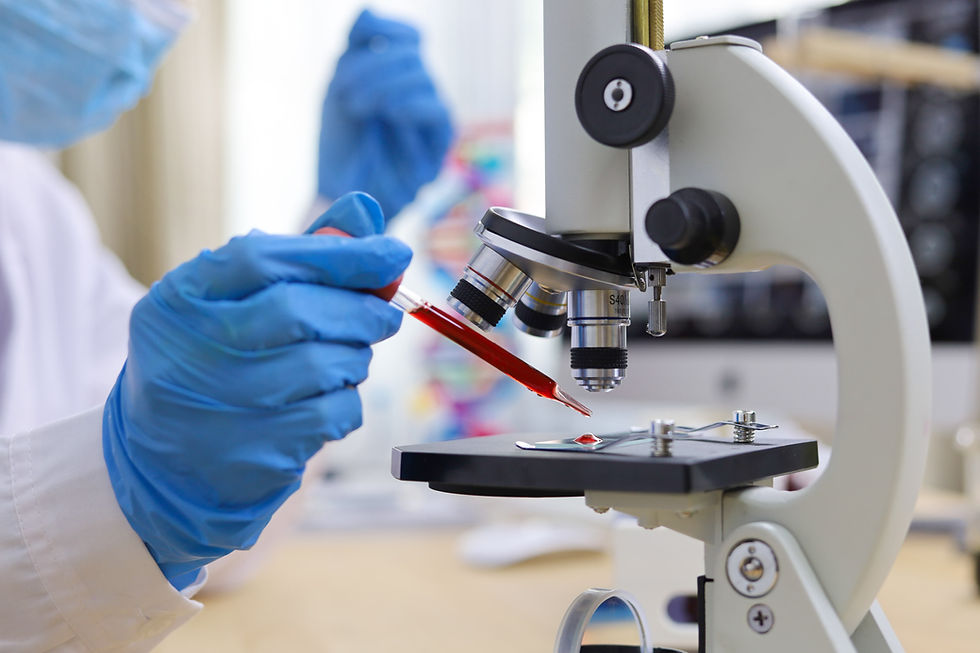TME 59: Understanding Rare Blood Groups and the Importance of Rare Blood Donor Registries
- Dr. ARUN V J

- Apr 2, 2025
- 3 min read
Blood donation is a lifeline for millions, but for people with rare blood types, finding a compatible donor can feel like searching for a needle in a haystack. While most of us know our basic blood type (A, B, AB, or O with a + or –), rare blood groups go far beyond this system. Let’s break down what makes a blood type rare, why it matters, and how we can work together to save lives through rare blood donor registries.

What Makes a Blood Group “Rare”?
A blood group is classified as rare if fewer than 1 in 1,000 people in a population share it. These blood types often lack common antigens (proteins on red blood cells) or have unusual combinations, making them hard to match during transfusions.
Examples of Rare Blood Types
Rh-null (Golden Blood):
The rarest blood type in the world, with only ~50 known cases.
Lacks all Rh antigens, so it can donate to anyone with Rh-related needs. However, Rh-null individuals can only receive Rh-null blood.
Bombay Blood Group (hh):
Missing the H antigen, which is the foundation for A and B antigens.
Found in 1 in 10,000 people in India but nearly nonexistent in other regions.
Duffy Negative:
Common in people of African descent (protects against malaria) but rare in other populations.
Vel-negative:
Affects 1 in 5,000 people. Vel-negative patients can have severe reactions if given Vel-positive blood.
U-negative:
Mostly found in people of African heritage, with fewer than 1% having this type.
How Do You Know If You Have a Rare Blood Type?
Most people only learn their basic blood type (A/B/AB/O and Rh+/-). Identifying a rare blood group requires advanced testing:
Extended Phenotyping: Checks for other antigens (e.g., Kell, Duffy, Kidd).
DNA Testing: Used if standard tests are inconclusive.
You might discover you have a rare blood type if:
You experience complications during a blood transfusion.
A family member has a rare blood type (genetics play a role).
You volunteer for specialized testing through a blood bank.

Why Do Rare Blood Types Exist?
Rare blood groups are usually caused by:
Genetic Mutations: For example, the Bombay blood group results from mutations in the FUT1 gene.
Inherited Traits: Rare combinations of genes from both parents.
Ethnicity: Some blood types are more common in specific populations (e.g., Duffy-negative in Africa).
Challenges Faced by People with Rare Blood Types
Emergency Shortages: Most hospitals don’t stock rare blood types.
Transfusion Risks: Wrong matches can cause kidney failure, shock, or death.
Pregnancy Complications: A mother’s antibodies might attack her baby’s blood cells.
Isolation: Patients may feel anxious knowing their “match” could be continents away.
How Can We Help? Solutions for Rare Blood Needs
Solutions for Rare Blood Needs
When someone needs rare blood, the following steps are taken:
Rare Blood Donor Registries – Some countries maintain databases of rare blood donors for quick access.
International Blood Exchange – Organizations like International Society of Blood Transfusion (ISBT) help locate rare blood globally.
Autologous Donation – Patients scheduled for surgery can store their own blood in advance.
Directed Donation – Family members with matching rare blood can donate.
Advanced Blood Banks – Some centers freeze rare blood units for future emergencies.
Rare blood units can be frozen and stored for up to 10 years.
Why We Need More Rare Blood Donors
Imagine needing blood to survive, but only 5 people in your country are a match. This is the reality for many. Registries save lives by:
Connecting donors to patients across borders.
Raising awareness about rare blood types.
Encouraging testing to identify more rare donors.

How You Can Make a Difference
Get Tested: Ask your blood bank for extended phenotyping.
Join a Registry: If you have a rare type, register with a global or national database.
Spread the Word: Share this information—many rare donors don’t even know they’re rare!
Donate Regularly: If you’re a match for someone, your donations could be their only hope.
Final Thoughts
Rare blood groups remind us of humanity’s incredible diversity—and the importance of standing together to protect one another. By supporting rare blood donor registries, we can ensure that no one is left waiting for a miracle.
Your blood could save a life. Do you know your type?





Comments